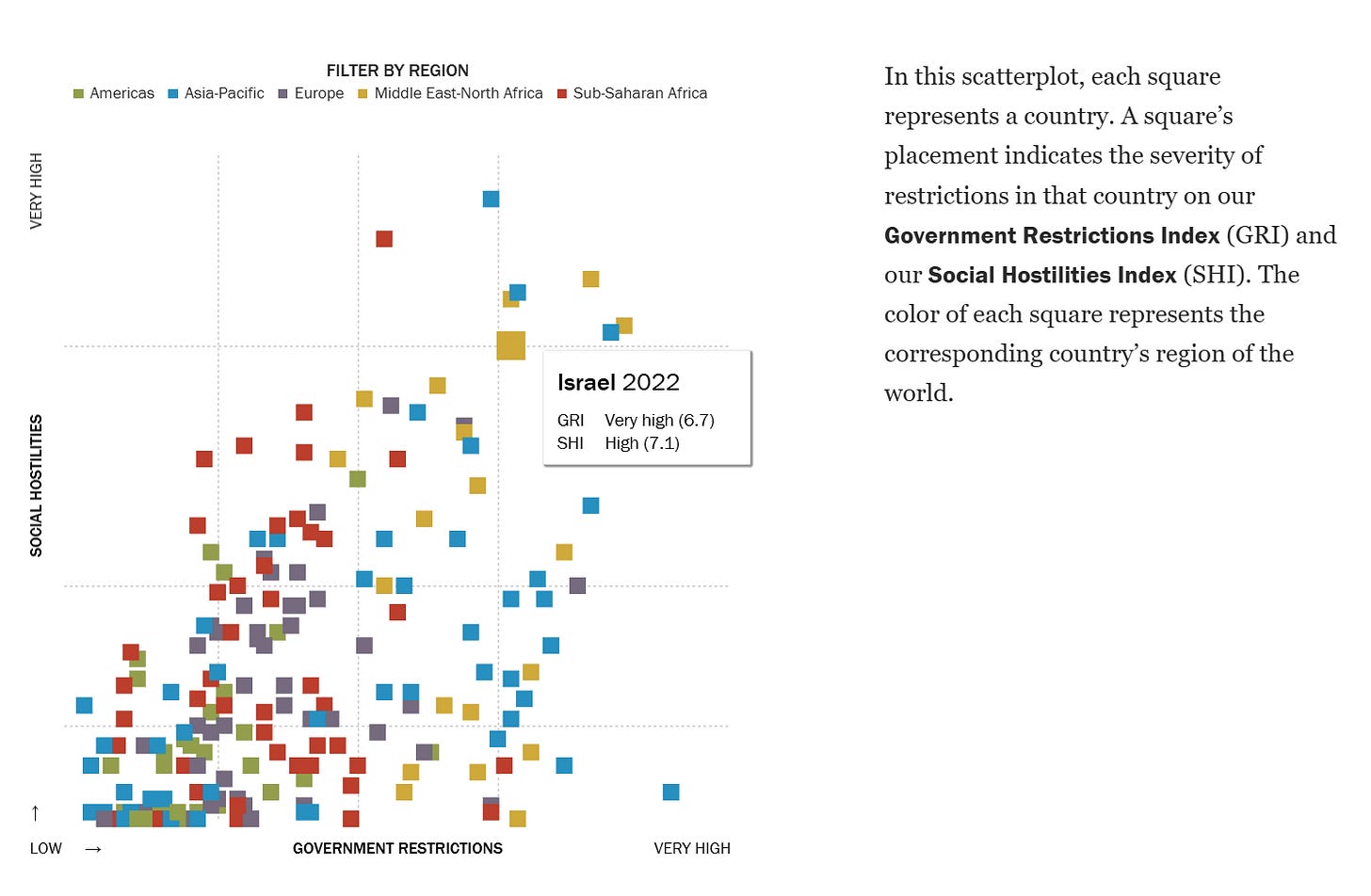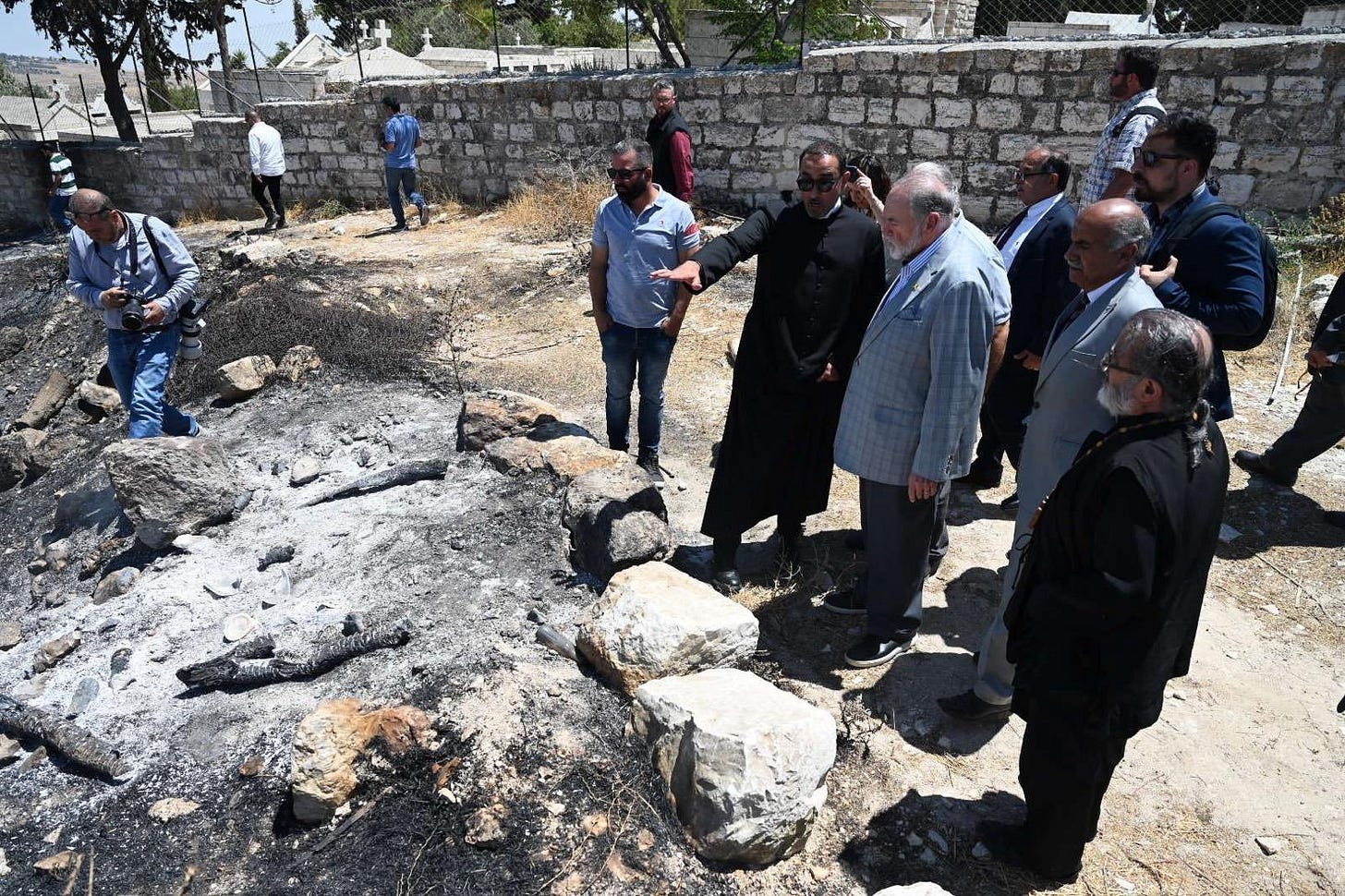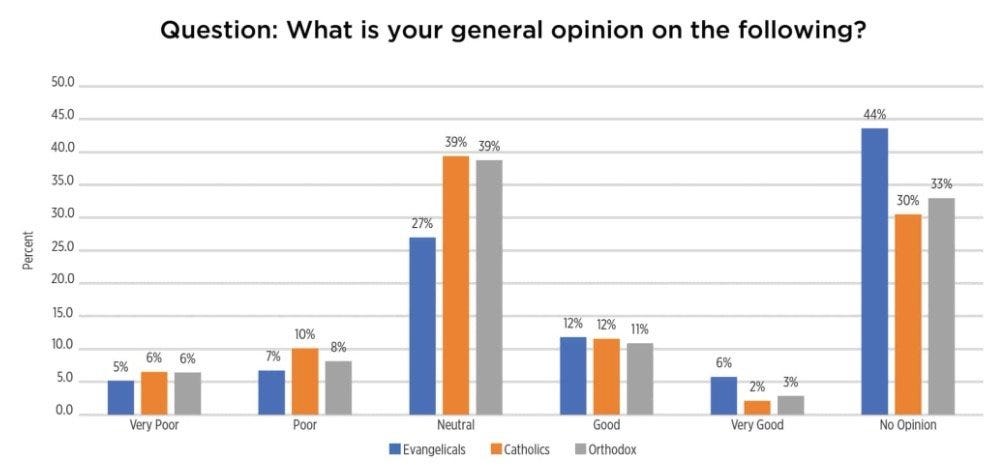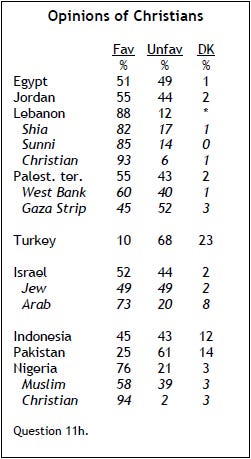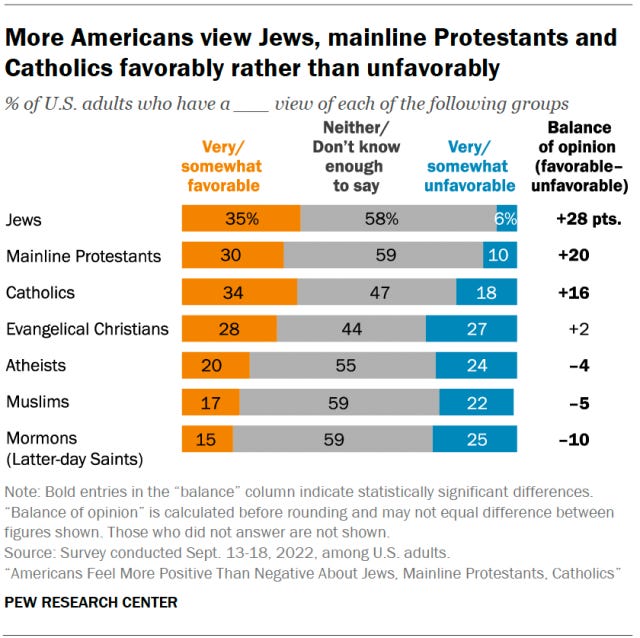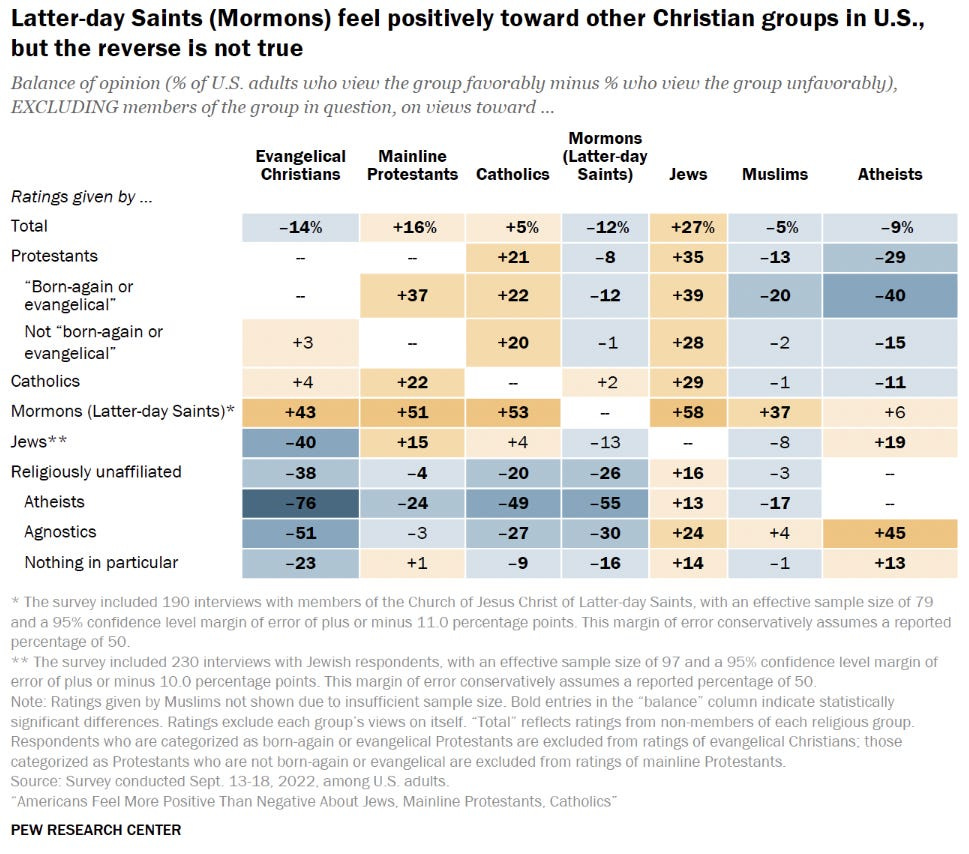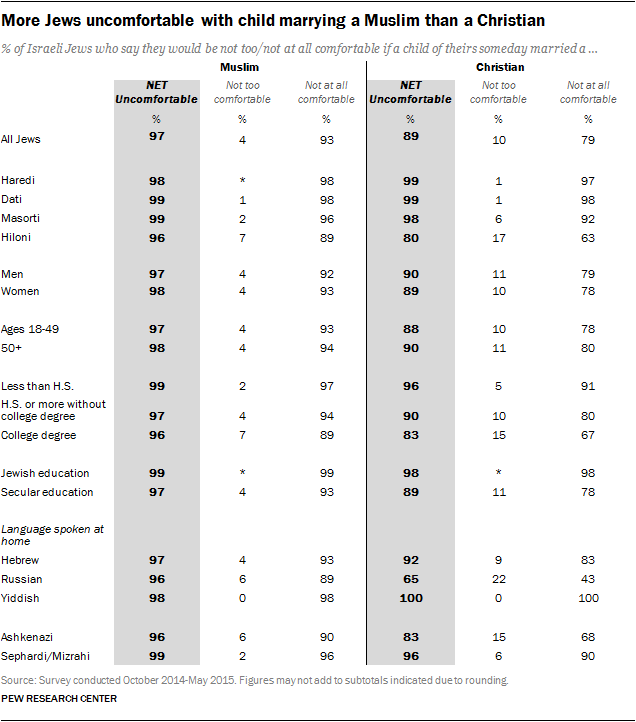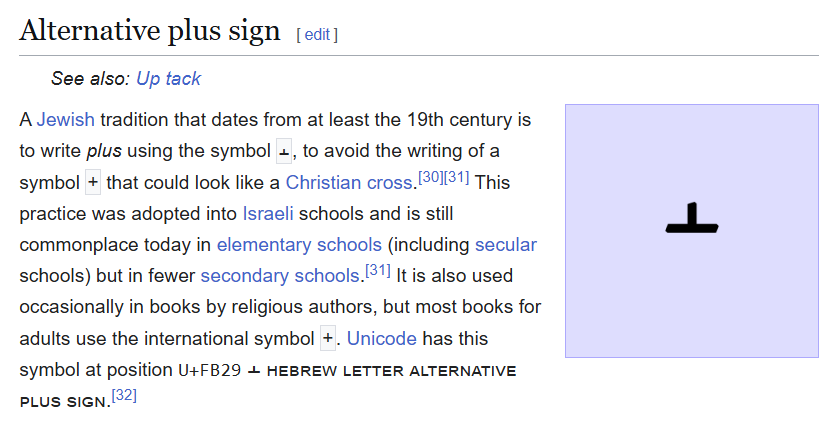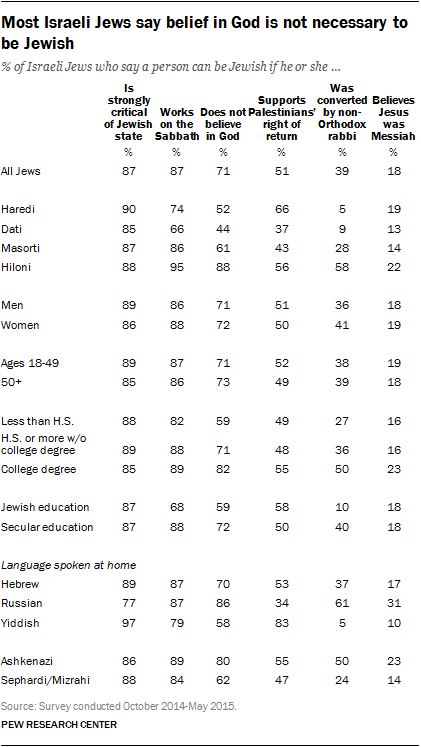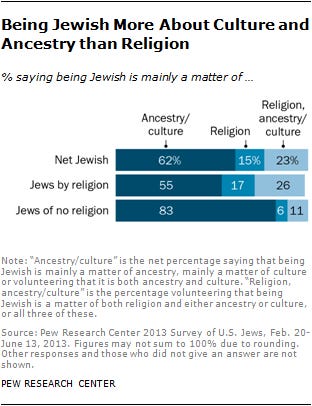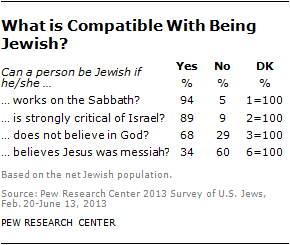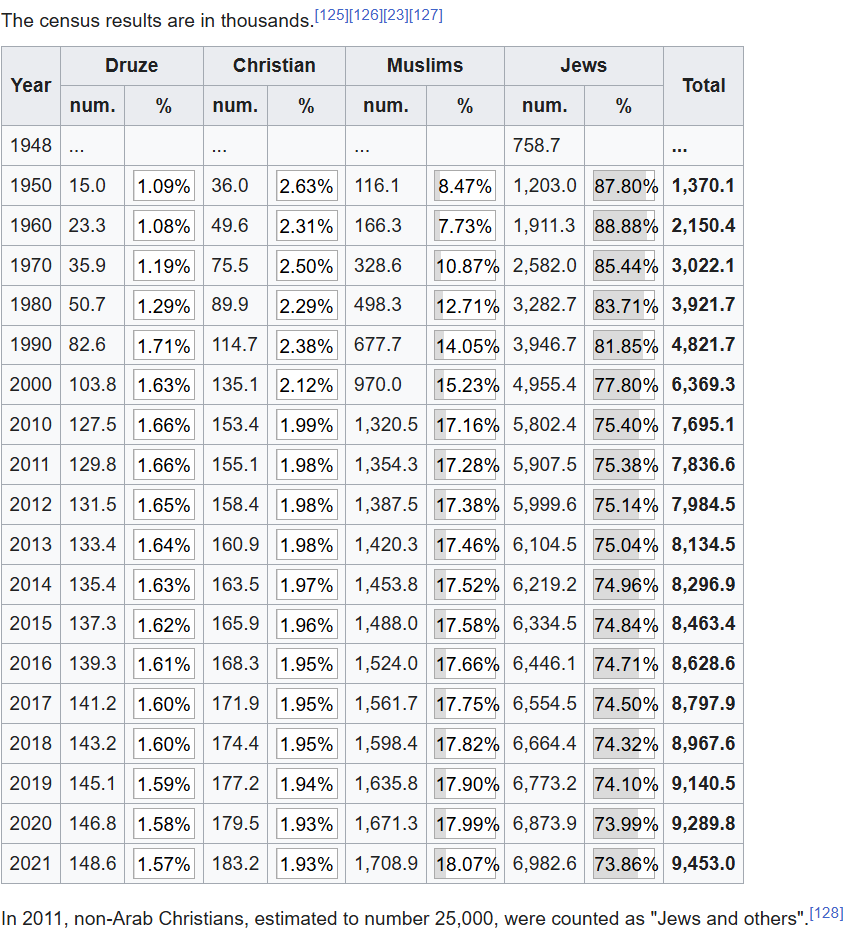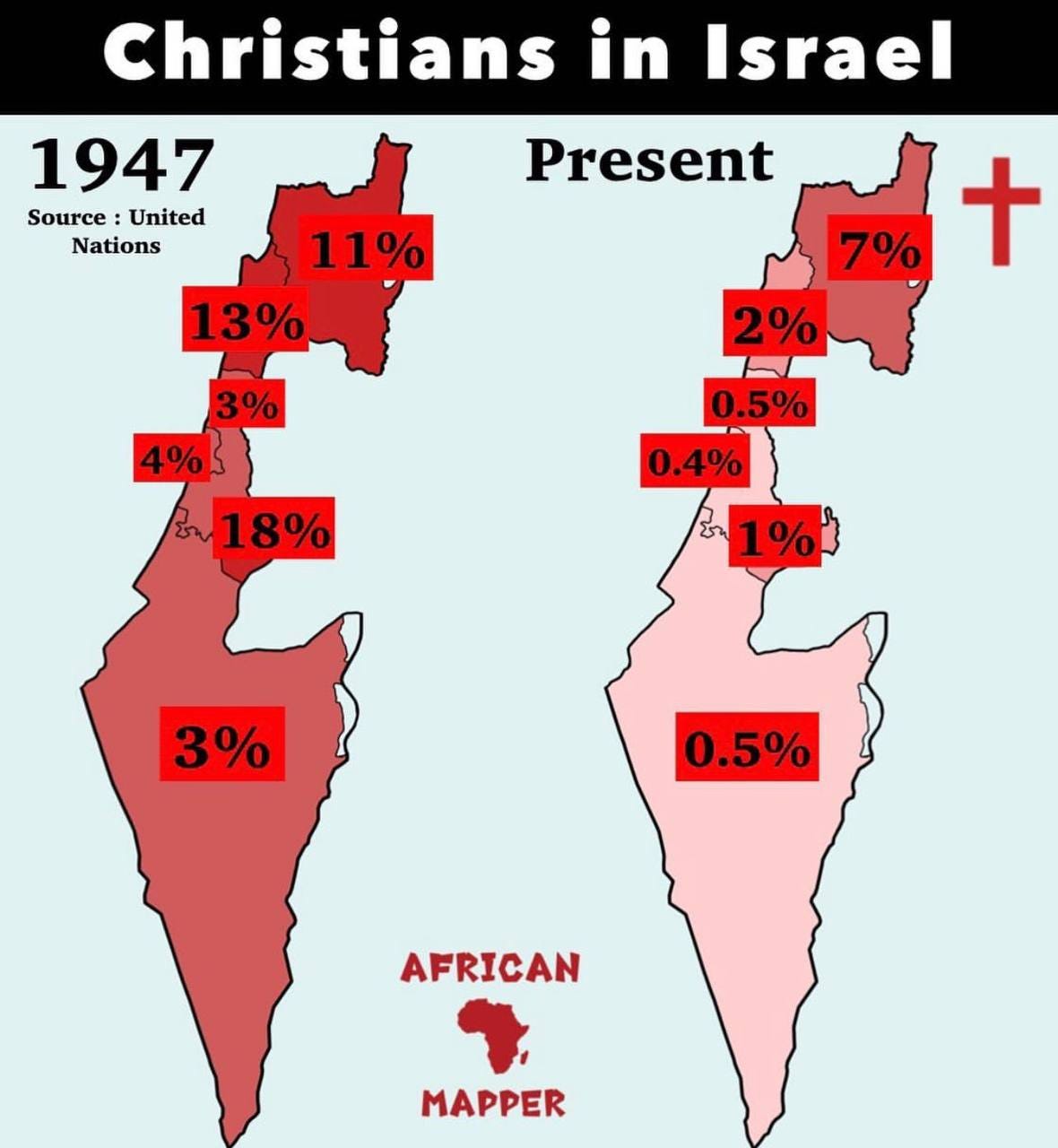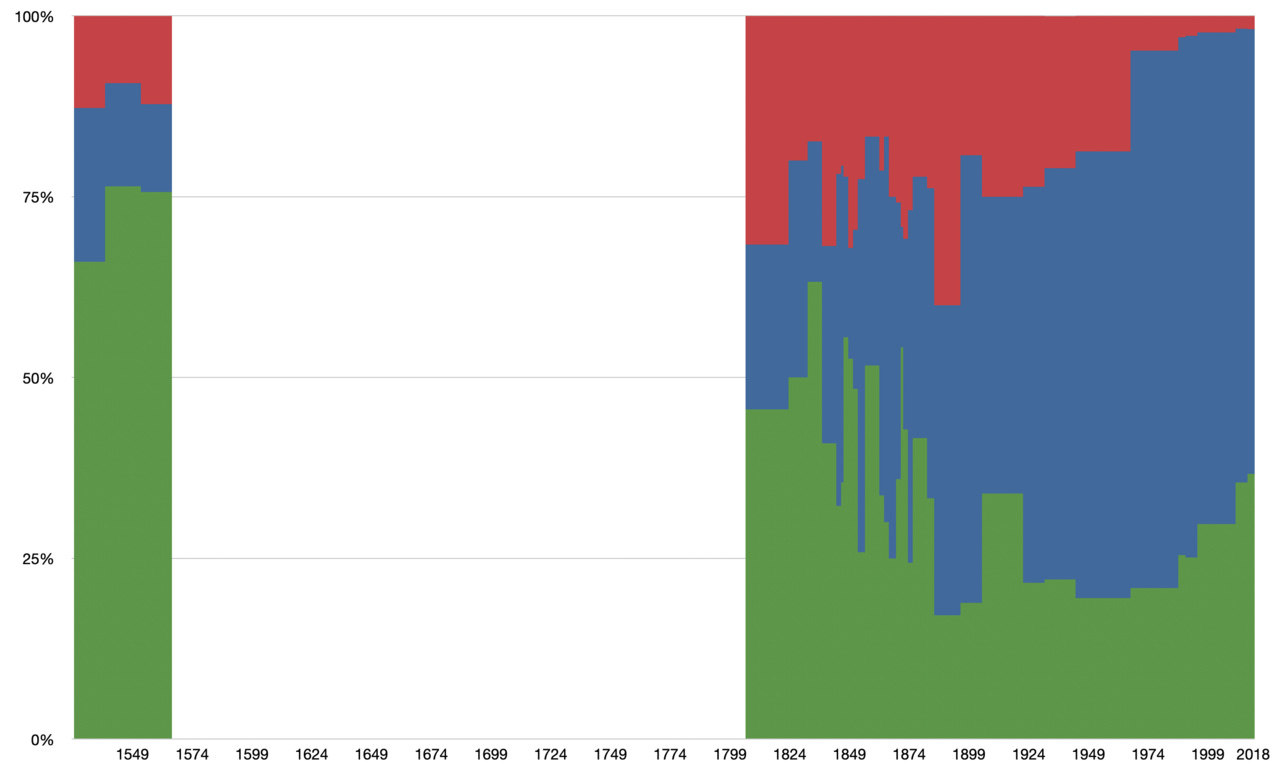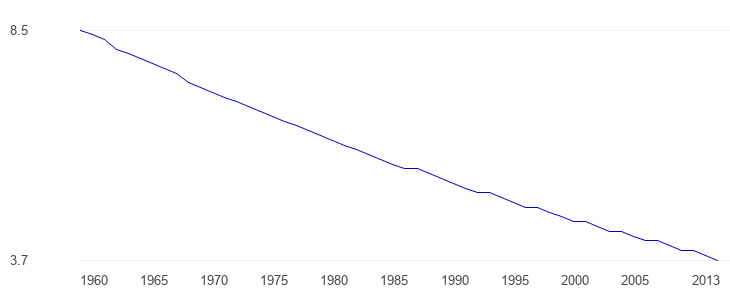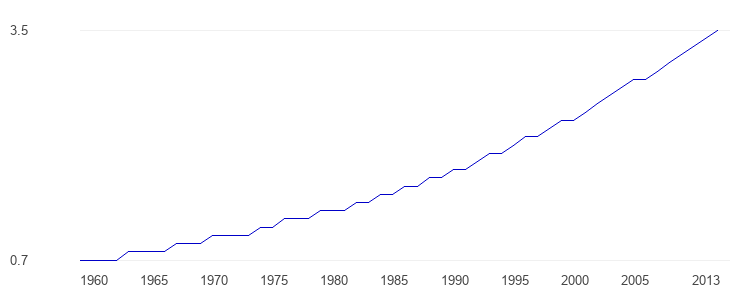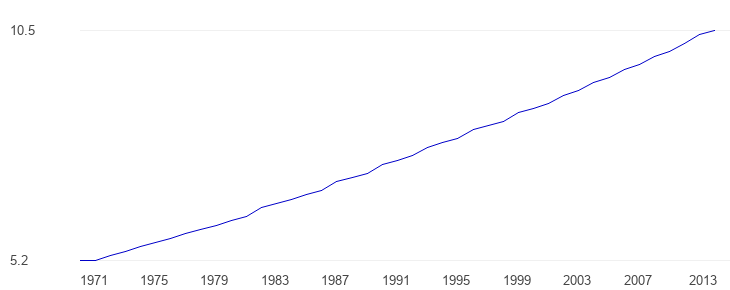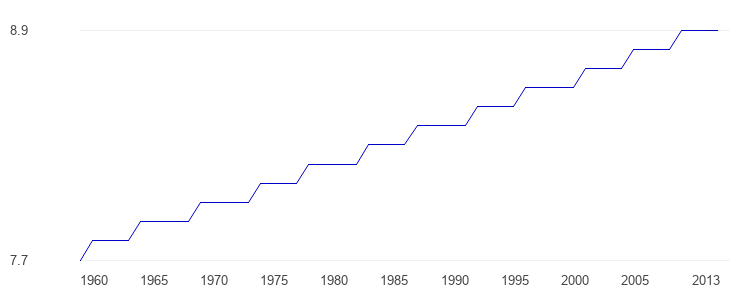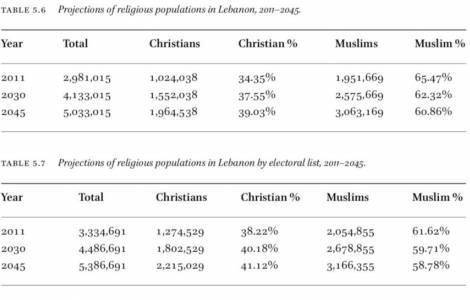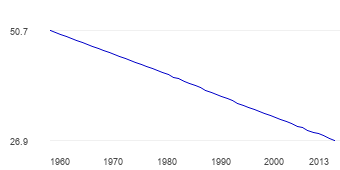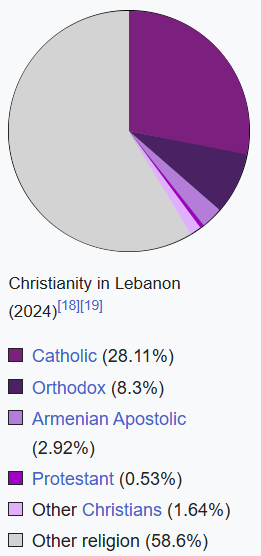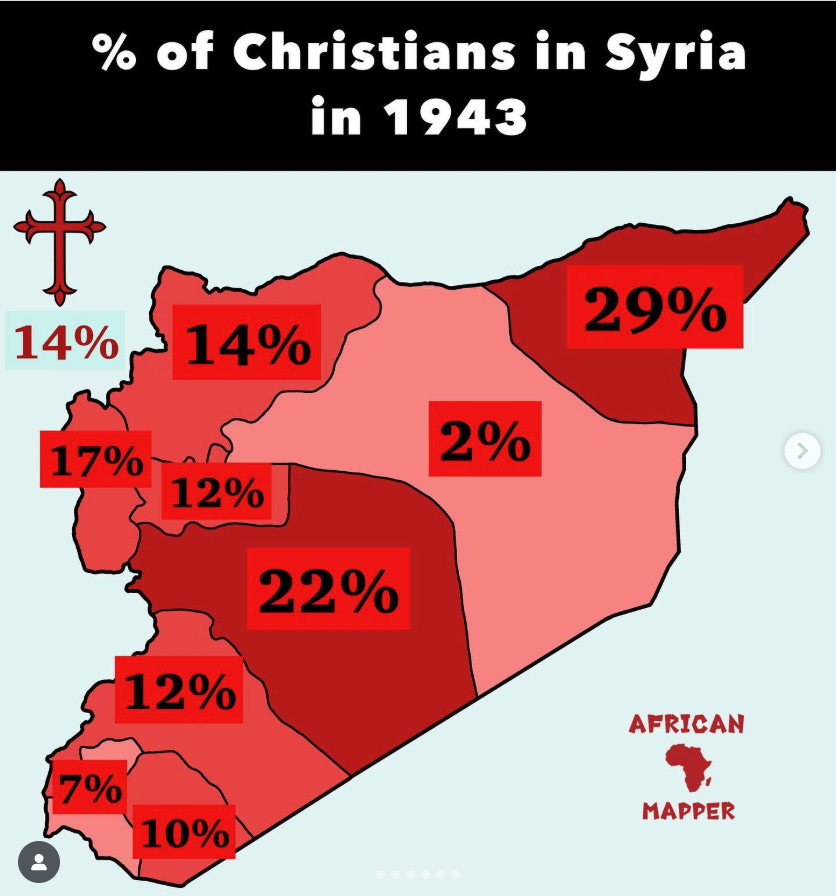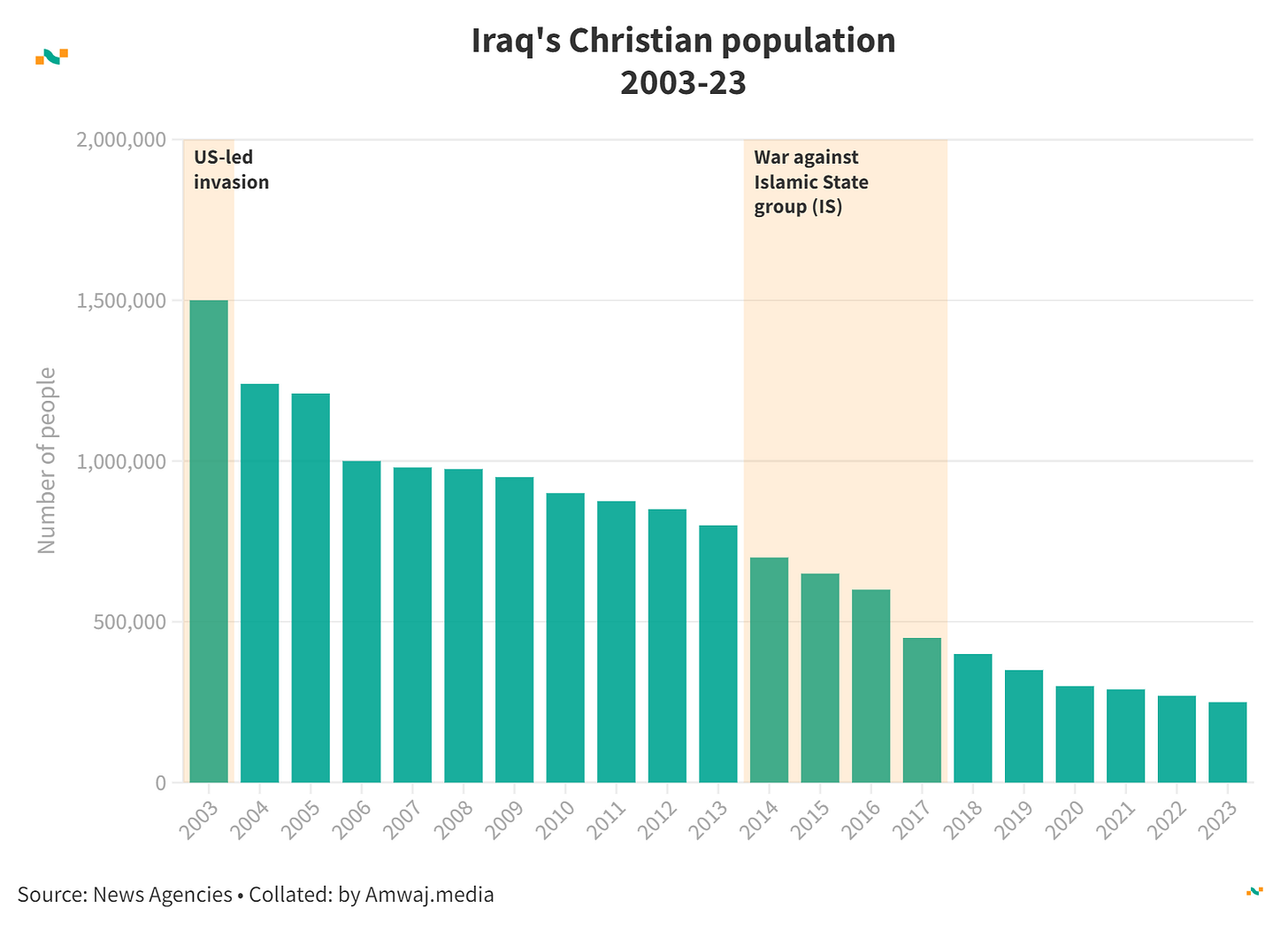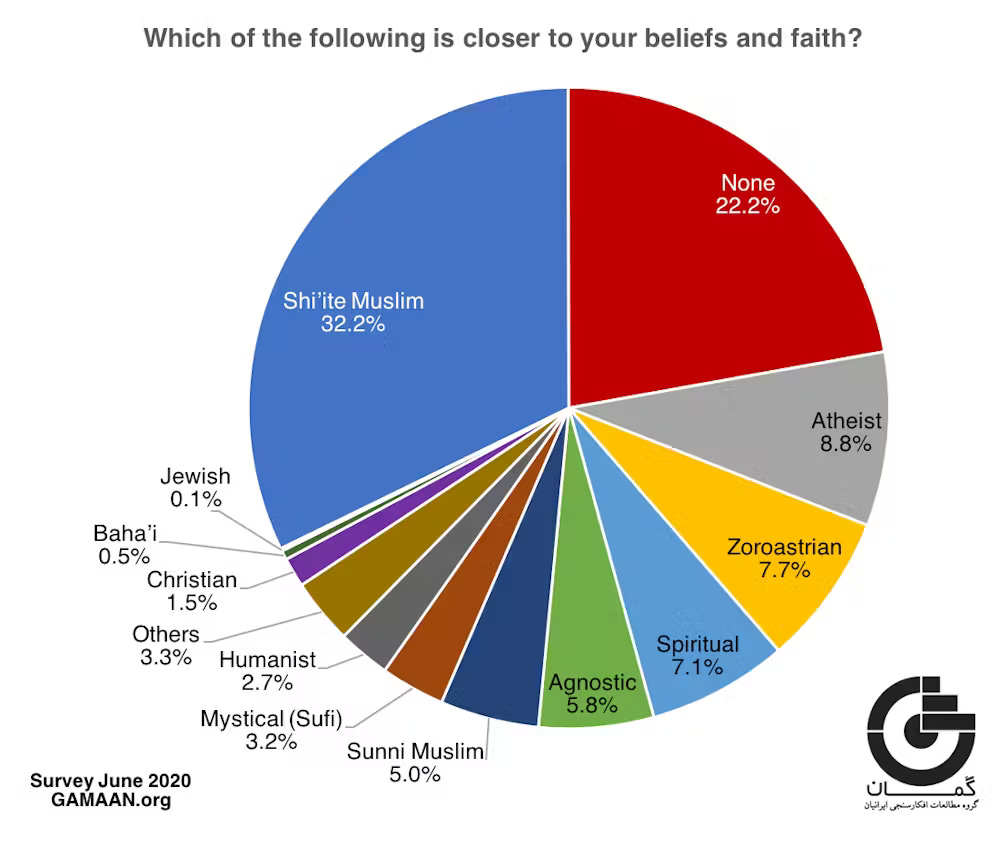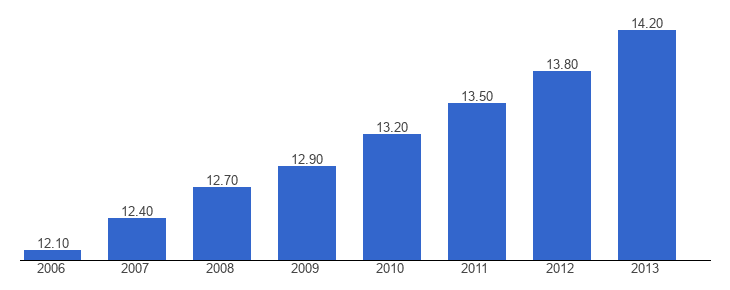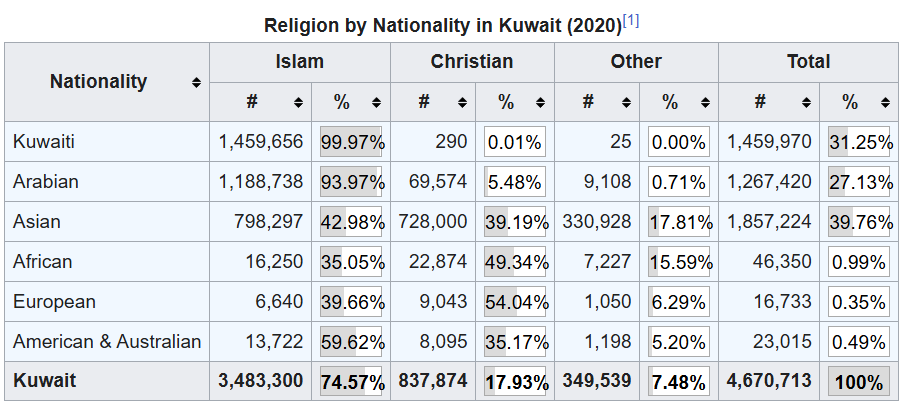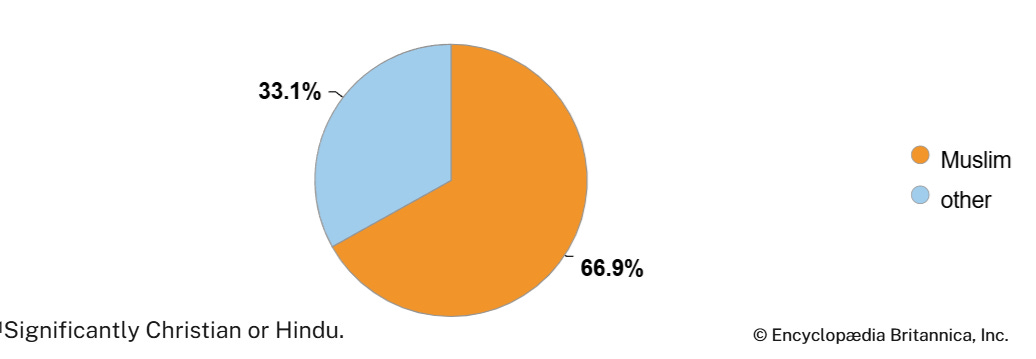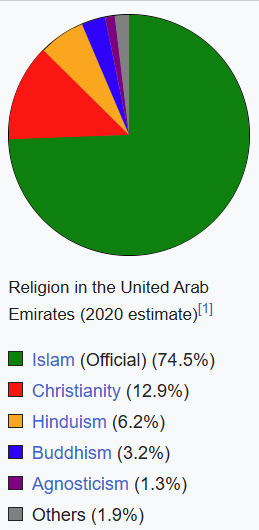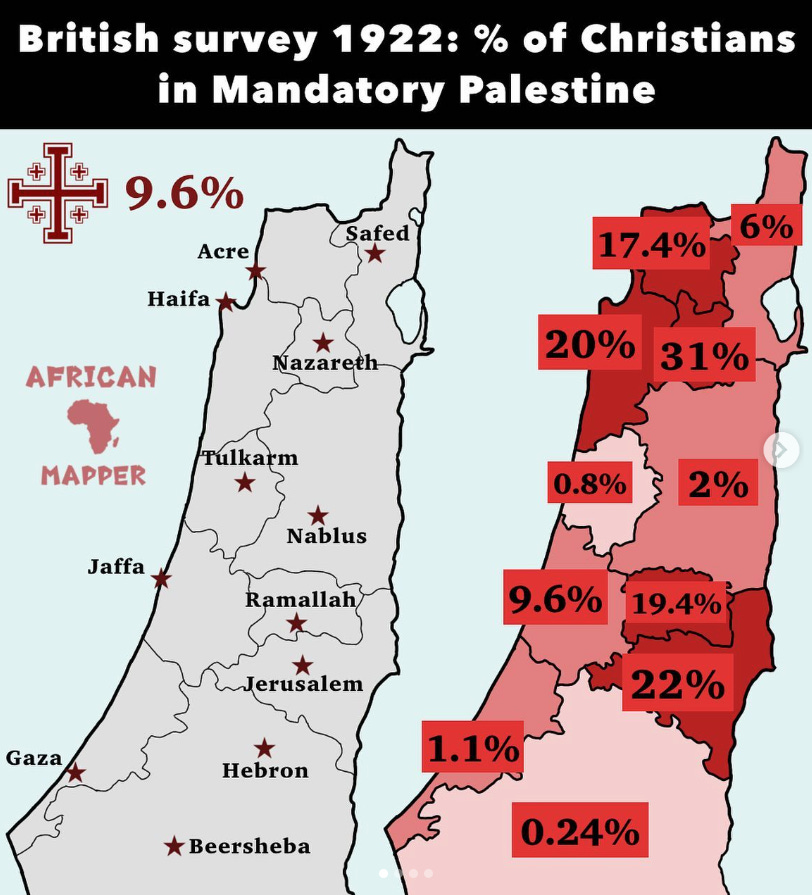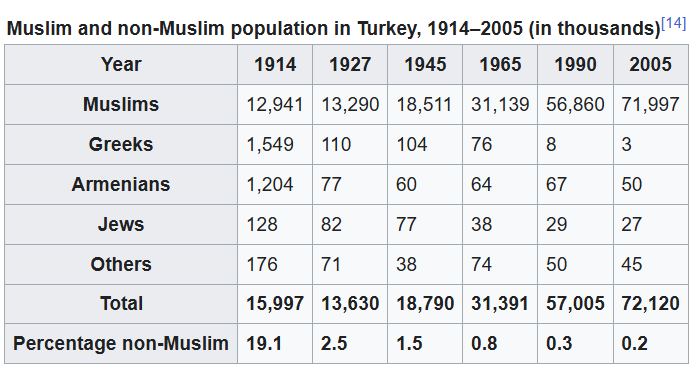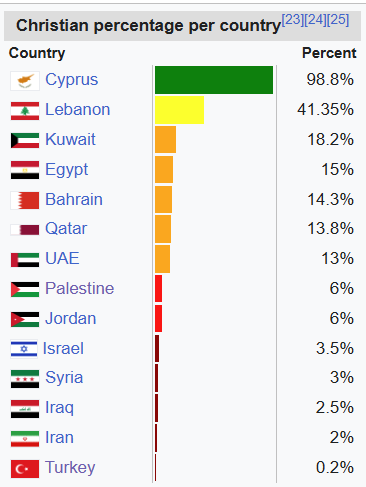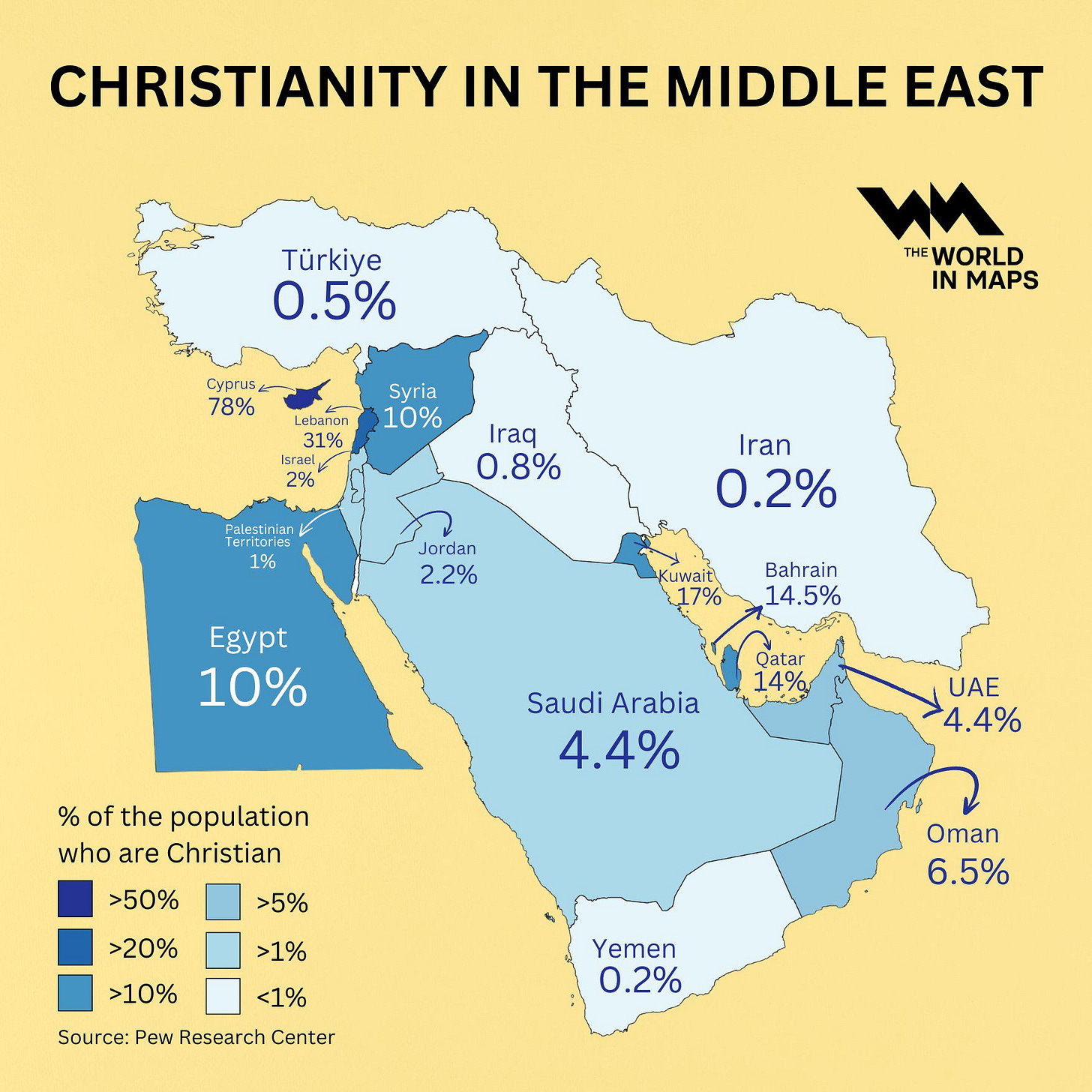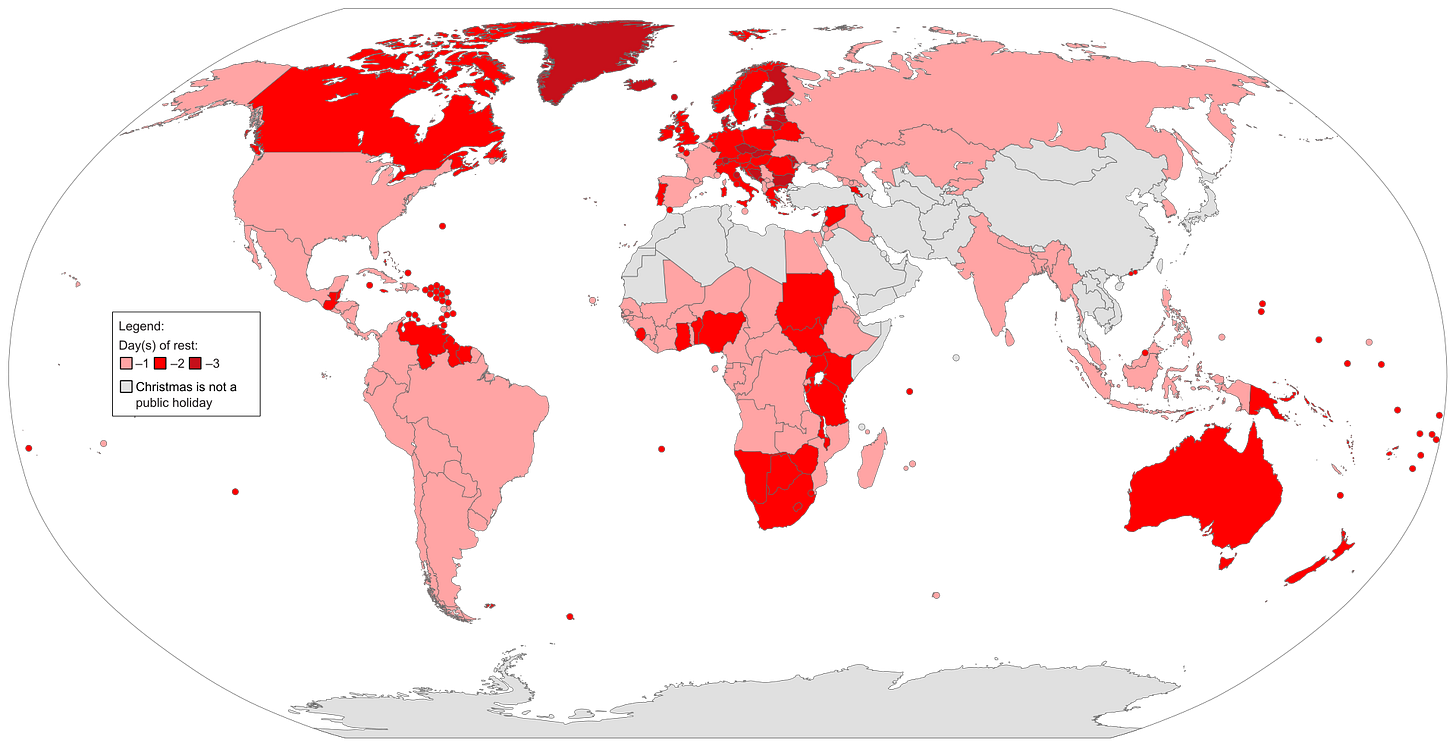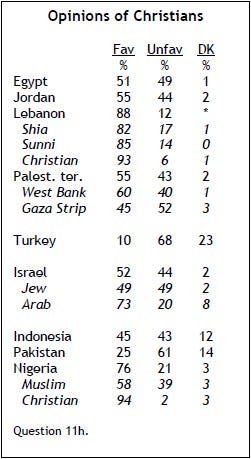Israel's War on Christians Or How Our "Judeo-Christian" Ally Is Anti-Christian
Documenting Widespread And Systemic Anti-Christian Discrimination In Israel
Andrew Klavan from the Daily Wire says that all Christian Americans should have a “dual loyalty” to Israel because Christ was born there. Likewise, we are often reminded that our civilization is “Judeo-Christian”—but how “Christian” is Judea, and how reciprocal is the West’s Christian affection for Israel and Jews among Israelis?
In other words, since we believe Israel is our ally and that Jews are our spiritual brothers in a common stand against the barbaric Muslim hordes—who are trying to invade Europe but thanks to Israel, are being held back in Gaza—one might assume that the treatment of Christians in Israel is exemplary, at least on-par with treatment of Jews in the West! Certainly better than in any Muslim country in the region. After all, Israel is billed as the only Western democracy in the Middle East, a nation that respects human dignity, religious freedom, and so on and so forth.
Now, to start off, it is important to debunk a commonly held American-Conservative myth, which suggests that Israel is supposedly a “secular state” instead of a Jewish one.
Now, whether they are saying this to escape being accused of antisemitism or because they are genuinely stupid is besides the question, because Israel is legally, and functionally not a secular state, and very much a Jewish one! In case you are not aware, here is how Israel is a Jewish state:
Israel has been explicitly founded as a Jewish state, and in a 2018 law, they have clarified it once again, by emphasizing the uniqueness of Jews to the land, condoning Jewish settlements in West Bank, encouraging Sabbath (Saturday) as a state day of rest, following the Jewish religious calendar and downgrading Arabic language among the 11 Basic Laws.
Only Jews, or those with a connection to Judaism are ever allowed to naturalize in Israel.
The Church is not separated from the state in Israel.
Torah is taught in all schools in Israel.
Almost nothing works on Sabbath as it is a Jewish day for rest and so Jews are legally forbidden from working. This law does not apply to non-Jews, however, in-practice it often does.
Non-Jews are not allowed to marry Jews nor be buried next to Jews. There is no institution of “civil marriage” in Israel, either. All marital and burial concerns are controlled by the Chief Rabbinate of Israel.
Jewish religious communities and lifestyles are being unfairly subsidized and promoted by the government, but not Muslim or Christian ones.
Until very recently, religious Jews were exempt from military service.
You are free to fact-check any one of these claims which I am not going to source on purpose (unlike everything that I am about to say next). Any honest person reading this will have a hard time making the argument that Israel is “secular”, because what I’ve just described goes way beyond the wet dreams of hardcore Christian nationalists in America. Furthermore, Israel constantly peaks in the top 20 most religiously restrictive countries, making itself the fifth-highest level of “social hostilities related to religious norms,” and the sixth-highest level of “interreligious tension and violence” — a worse score than Syria.
However, recently the situation has been getting even worse. According to Pew Research, in 2022 Israel was in the top 10 most religious minority intolerant countries in the world and a majority of Israeli Jews want to keep it that way.
Purely by this standard alone, you would naturally expect that Christians in Israel navigate a challenging reality. Certainly, far more challenging, if they were in Saudi-Arabia, Palestine or Qatar.
But thanks to available data, we don’t need to speculate. As summarized by the US Department of Justice report from 2023, Christians face:
Violence and harassment from violent Jewish extremists. The report states, this is “almost a daily occurrence”, Christians often have to hide their crosses.
Vandalism and desecration of churches and cemeteries. Approximately 30 graves from the Anglican cemetery were desecrated, a man attacked priests with an iron bar during a Lent service.
Attempts by settler organizations to take over property in Christian areas. Constant violent clashes in Jerusalem, conflicts with Jewish settlers in the West Bank, official governmental policy of seizing Christian Churches, like recently with the Armenian Patriarchate
Restrictive government policies on residency and access to Holy Sites. It is effectively unobtainable for Palestinian Christians to visit Holy Sites inside of Israel.
No action from the government. Famously, National Security Minister Itamar Ben Gvir stated that spitting on Christians is not a criminal case, but a Jewish custom and did not justify an arrest.
Every year since 2021 there are dozens of published videos of Jews spitting at Christians in Jerusalem and other places inside of Israel.
Christians in Israel are usually attacked for two reasons:
Because they are Christian
Because they protest Israeli actions (the next story is an example of the second)
Just before October 7th, there was a case of Shireen Abu Aqla, a Palestinian-American Christian journalist who was killed by Israeli soldiers. Not only was she killed by Israeli soldiers, but Israeli police also raided the hospital where her body lay and attacked her pallbearers and mourners with batons and rubber bullets during the funeral procession.
The Israelis have defended themselves in the usual way, as the article explains:
A government spokesman pointed out that “journalist are killed around the world every week, without the same global reaction” and claimed that the international furor over Abu Aqla’s death was evidence of an “antisemitic double standard.” The Jerusalem Post called CNN’s report an “anti-Israel hit job.” Yet Tel Aviv has yet to provide a shred of evidence proving their innocence.
More recently, the Israelis have taken active measures of closing and taking property of Christian Churches in Jerusalem that were Christians for hundreds of years, in addition to simply spitting on them, as was previously practiced. Originally impacting only the Armenian Orthodox Church, Israel has expanded to seizing more Christian Churches in the land.
The attacks on Christians inside of Israel, are not isolated incidents but constitute part of a long standing systemic agenda of Israeli government and society.
As late as of 2013 the US State Department has reported that attacks by Israeli settlers are not prosecuted. An article titled “Israel Is Not As Christian-Friendly As You Think” reports that:
Archbishop of Jerusalem Fouad Twal questioned the Israeli government’s inability to respond appropriately and bring justice in crimes against non-Jews: “In light of the fact that the great majority of vandalism acts do not lead to trials, we must ask if the government is willing to get down to the root of the problem?”
Former head of the Shin Bet, Israel’s secret police, Carmi Gillon, shed some light on the phenomenon. He explained, “We don’t see results, because we’re not intended to see them… There’s no such thing as ‘can’t do’ in the Shin Bet, just ‘don’t want.’” In a radio interview, former Israeli army chief of staff Dan Halutz declared cryptically, “If we wanted, we could catch them and when we want to, we will.”
This is in sharp contrast to crimes against Jews, in which Palestinians, both guilty and innocent, are regularly apprehended and imprisoned—with an almost 100% conviction rate—in a system of military law that affords them few rights.
Ever since the Gaza “war” broke out the attacks on Christians have greatly increased, and thankfully, they become covered more often. As the Times of Israel reports:
Last year’s inaugural report documented 89 cases, including 32 attacks on church properties, 30 formally reported cases of spitting, and seven violent attacks, most of them against multiple victims. In the 2024 study, 111 episodes are reported, including 46 physical attacks, 35 attacks against church properties, and 13 cases of harassment.
According to the report, most perpetrators appear to belong to the ultra-Orthodox and national-religious communities. The majority of the victims are clergy or people wearing visible Christian symbols.
Recently, the Bishop of the Evangelical Lutheran Church in Jordan and the Holy Land warned, “The Christian community is on the brink of extinction.”
Funny enough, the American Evangelical Christian ambassador to Israel Mike Huckabee has visited one Christian village in the West Bank that has been subjected to arson and other attacks by Jewish settlers and even threatened to publicly accuse Israel of discriminating against Christians and calling the killing of a US citizen by another Jewish settler an act of terrorism.
The Israeli official reaction to this was, as usual, comical:
Instead of responding to the concern about anti-Christian policies in Israel, which go far beyond evangelical missionaries, Arbel responded that Huckabee is not a team player. Avoiding addressing the issue at hand, Arbel, using typical Israeli doublespeak, criticized Huckabee for deviating from “accepted working norms” and not acting in “mutual trust” with Israel.
The Israeli foreign policy is anti-Christian too, historically they have abandoned Lebanon to the Shia extremists and recently they helped Azerbaijan to ethnically cleanse Armenian Christians out of Nagorno-Karabakh by selling Azerbaijan weapons.
Famously, Israel is one of the countries to not have recognized the Armenian genocide. Now, the “cope reason” is that it antagonize Turkey, but Israel and Turkey already hate each other, so the reason is invalid. A more cynical, and perhaps more accurate, interpretation is that acknowledging the genocide of one Christian people would create an unwelcome precedent, undermining Israel's narrative by validating the idea that Christians can be targeted victims in the Middle East.
But why does it happen and do Jews feel a particular sense of animus towards Christians?
I believe that they do. As I have already documented in another article, Jews and Israeli Jews in particular are a highly ethnocentric people. They don’t just hate the Muslims, they hate the Christians too. And “hate” is a particular word because their actions can more motivated by a “feeling of disgusting” as opposed to a righteous indignation or the type of hatred that they have developed against Muslims. If I may add, I believe that a good chunk of Israeli Jews, hold Christians and their inability to defend themselves in contempt.
Fewer than 20% of Israeli Jews have positive views on Christians, to their credit, fewer than 20% of Israeli Jews have a negative opinion of Christians too! However, if you break it down by removing those who are neutral or with no opinion, you basically get a 50/50 with a slight bias against Christians, which is consistent with earlier surveys.
At the same time, the American attitudes towards Jews (this data gathering took place before October 7th) is very positive if you remove the “i don’t know” category.
Likewise, Christian Identity is deeply despised and looked down upon, not just by Israeli Jews, but American Jews (and other Western Jews) also:
Here is a famous graph (that already became a meme) showing how despite evangelical Christians’ deep affection for Jews, that sentiment is met with outright disdain in return.
Another interesting metric of determining how really loved Christians are in Israel, 89% of all Jews including about 99% of all religious Jews have admitted to being uncomfortable with their child marrying a Christian. Still, not quite the hate they have for Arab-Muslims, but its not like they ever pretended to be allied to them.
Of course, nothing can best describe the revulsion of many religious and nationalistic Jews have for Christians as the desecration and destruction of their holy symbols, which is almost always accompanied with land expansion, as recently was the case with the taking of further Syrian territory.
Another remarkable case was in 2024 when a Christian soldier fighting for the IDF died and got buried in an IDF cemetery, yet because there was a cross on his grave, it had to be removed from his headstone. The Jerusalem Post quoting the officials:
“By law, it is not permissible to place a cross or any other religious marker on a military headstone,” the Ministry said.
“This is especially important in the Haifa military cemetery, where fallen Jewish soldiers are also buried,” the Ministry added, citing a ruling by the IDF Chief Rabbi that states the holiness of the Jewish cemetery is harmed by the cross.
Finally, the most ridiculous (and also the most telling!) Israeli practice towards Christians and the West in general, is not using the plus (+) sign in mathematics.
This is certainly, the most obsessed cultural practice I have stumbled upon. I have personally witnessed it myself while I was enrolled in Israeli elementary school and middle school (until grade 8). It shocks people who are completely unfamiliar with Israeli society, but for people who grew up in the culture, this is not regarded as anything out of the ordinary.
No other culture has gone to such lengths as Israeli Jews to alter a plus sign simply because it reminded them of Jesus Christ; such behavior has no precedent, but it is done specifically so that Israeli Jews feel the spiritual separation from Christians.
Still, despite all of these cultural practices, the Israelis believe that they must be more pro-active. In-fact a bill forbidding Christians from spreading the gospel in Israel with punishments of up-to two years in prison was proposed in the Knesset. Benjamin Netanyahu had to spend his political capital to shut it down, as it was seen as bad optics for the American Evangelical Christians.
At the same time, the bill was mostly symbolic and differed from the common practice of the Israeli only in the extent of punishment. To quote Lazar Berman from The Times of Israel:
In its 2010 International Religious Freedom Report, the US State Department wrote that Israel has “taken a number of steps that encouraged the perception that proselytizing is against government policy,” such as detaining missionaries and citing “proselytism as a reason to deny student, work, and religious visa extensions.”
In otherwards, as Karl Radl paraphrases Lazar Berman:
The Israeli government is going out of its way to make ‘preaching Christianity in Israel’ illegal de facto while claiming that it is not illegal because it is ‘officially’ legal de jure.
The procedure is quite simple, evangelizing Christians or Messianic Jews are not allowed entry to Israel due to suspicions of proselytizing, but officially, for other reasons. To quote an expert on immigration to Israel Joshua Pex:
Israeli border control officers have been known to deny entry to Christian and Messianic Jewish leaders who they suspect of missionary activity. According to a legal procedure published by the Ministry of Interior on July 20, 2017, potential visitors to Israel may be denied entry on the “suspicion of missionary activity.” This procedure is a slippery slope, as immigration officers at border control will likely have a broad interpretation of the term “missionary activity.”
Visitors who tell border control officers that they are on a “mission’s trip” or who are found carrying evangelistic material in their belongings may be questioned and subsequently denied entry. Also various Orthodox Jewish anti-missionary organizations sometimes inform the Ministry of Interior about individuals they request be denied entry to Israel. In the past foreign citizens already in Israel participating in an evangelistic campaign were detained by immigration police and deported from Israel. The legal reason for the deportation is the alleged “unlawful use” of a tourist visa.’
In other words, you will be deported from Israel if you come there for the purpose of spreading the gospel. At the same time, the lives of Jewish converts to Christianity who are citizens, aren’t much better either. To quote Lazar Berman again:
Some 30,000-40,000 Messianic Jews live in Israel. According to Israel, Messianic Jews living abroad are considered Christians, and are not eligible to immigrate to Israel as Jews. The Chief Rabbinate does not consider the community in Israel as Jews either.
As the main Messianic Jewish website in Israel, Jews For Jesus, complains:
As a result of this social stigmatism, often we are not considered worthy of being hired for a position or trustworthy enough to rent property.
Just 18% of Israeli Jews believe that Jews who are accepting that Jesus is the Messiah can call themselves Jewish. In contrast, if you are strongly critical of Israel or do not believe in God, the overwhelming majority of Jews would still regard you as Jewish.
As the saying goes: “You can be an atheist Jew or a secular Jew. But if you are a Jew that embraces Jesus as Messiah, you’re no longer a Jew.” You are excommunicated from the Jewish ethnicity.
Funny enough this sentiment is also being shared by American Jews, who despite overwhelmingly believing that being Jewish is about ancestry or culture, believe that Jews who accept Jesus as the messiah are no longer Jewish.
Christian Flight From Israel
Obviously if the Christian discrimination in Israel is tough, you would expect a lot of Christians fleeing Israel. This is precisely what we see, almost half (48%) of Christians under the age of 30 want to emigrate out of Israel. Four-fifths of them said that the main reason for leaving was escalating discrimination and violence suffered by Christians.
Since the declaration of the state of Israel, the Christian population has decreased from about 8% to about 1.8% of the total. The overweening majority of them was cleansed by Jews during the Nakba. After the Nakba, Christians made-up about 2.63% of Israel proper’s population and have decreased by 27.76% as a percentage of the total ever since, although the Christian population is still slowly growing due to fertility rate. Approximately, 74% of Christian infants are of Arab origin. The overall Christian fertility rate has now fallen to 1.64 and so it is expected that the Christian population of Israel will soon start to decline, naturally.
In-fact, the decline may have already started, but mostly due to the migration out of Israel. In 2024, the Christian population of Israel numbered 180,300 people while in 2021 it numbered 183,200. It would not be unreasonable to assume that some Christians may have fled Israel due to the intensification of anti-Christian pogroms that occurred after October 7th.
Jerusalem has experienced one of the worst decline of Christians in absolute terms. It numbered 29,400 Christians in 1944 or 20% of the total but in 2020, the number decreased to 16,300 or 1.6% of the total.
But how does Israel compare to other Middle Eastern states?
[✅Growth] Oman: Christians represent about 6.4% of Oman’s population and other non-Muslims number about 8% of the total.
[❌Shrinkage] Jordan: 2.1% of the population is Christian or about 250,000 people and around 1% other non-Muslim.
[✅Growth] Saudi Arabia: According to 2020 data, over 6% of the population is Christian or over 2,100,000 people are Christian and about 4% are other non-Muslim.
[✅Growth] Qatar: 15.4% of the population is Christian or over 350,000 people and 19% other non-Muslims.
[✅Growth] Egypt: 9.24% of the population is Christian or over 10 million people and below 1% other non-Muslims.
[Unclear] Lebanon: According to CIA about a third of the population or up to 2 million people are Christian, although proper estimation can be difficult to make, due to a lack of census. There is also no consensus on whether the Christian population is growing or shrinking, and the estimations vary.
[❌Shrinkage] Syria: During Assad’s reign the Christian population of Syria was around 10%, but after the Civil War, and the new reformed Jihadist government, the Christian population of Syria has fallen below 2.5% of the population. Druze make up about 3-4% of the Syrian population. In 1943 Christians made about 14% of the population in Syria, which suggest that between 1943 and 2011, the Christian population was slowly shrinking.
[❌Shrinkage] Iraq: According to CIA, about 1% of Iraq’s population is Christian and 1-4% other non-Muslim. However, before the US invasion of the country, Iraq had one of the largest Christian populations in the Middle East.
[✅Growth] Iran: Iran is one of the non-historically Christian countries which is currently experiences a boom in Christian identification mostly driven by local conversions (as opposed to immigration like in rich Arab countries). However it is difficult to give a proper estimate, official data put the Christian population at only a couple hundred thousand, while surveys put the number as high as few million.
[✅Growth] Kuwait: Christianity is growing in Kuwait and this growth like in many other Gulf countries is driven by Migrants, but also some Arab conversions, for 5.5% of the Arab population is Christian. The total amount of Christian population in the country is at least 18% and the other non-Muslim number at below 6%.
[✅Growth] Bahrain: It is difficult to give a proper estimate of the Christian population of Bahrain, because it is not explicitly counted, but it is estimated that about a third of the country is non-Muslim and a majority of that is Christian, followed by Hindu. All of it is driven by mass scale migration of Asian workers.
[✅Growth] United Arab Emirates: the UAE’s government is actively working to strengthen the Christian community inside and outside of the country, possibly doing more to advance Christian interests than any other Arab country. Christians number 13% of UAE’s population and other non-Muslims about 12%.
[❌Shrinkage] Palestine. It is estimated that Christians make about 6.5% of the Palestinian population worldwide or 500,000 people. Out of that, about 56% lives in the Diaspora about 150,000 in Israel proper and the rest in Palestine, with overwhelming majority living in the West Bank or (1-2.5% of the total population). However, the Christian community is continuing to shrink, to quote The American Conservative:
According to a 2017 study by Dar al-Kalima University (a secular college led by a Protestant minister), only 2 percent of Palestinian Christians cited “Muslim religious conservatism” as a reason to emigrate. By far the most common complaint was “the pressure of Israeli occupation.”
In other words, Israel is ultimately to blame for Christians leaving the West Bank and Gaza, not Hamas or the Palestinian Authority.
After October 7th, the attacks of Jewish supremacists on Palestinian Christians living in the West Bank have increased, last month a group of Israeli settlers [broke into the only Christian village, reportedly threw stones at homes, attempted to set one house on fire, scrawled threatening messages in Hebrew on walls, and torched three vehicles].
Before the formation of the Jewish state of Israel, Christians were around 10% of Palestine’s population.
Cyprus: Cyprus is a Christian-run nation, so I am going to skip it.
[Unclear] Turkey: Christianity barely exists in Turkey. All non-Muslims were violently ethnically cleansed out of the country in the early XXth century and the rest have slowly migrated out. The present estimation of Christians living in Turkey is at above 0.2%, but before ethnic cleansing, Christians were around 20% of Turkey’s population.
To summarize, Christianity experiences growth in most Middle Eastern countries, but is shrinking among key Israeli ally - Jordan and also in Yemen, Syria and Iraq. In Palestine, the shrinkage is due to Israel’s policies and Tukey has historically cleansed Christians out of the country, but presently, there appears to be a growth in the Christian identifying population. The data for Lebanon is also unclear and Cyprus is excluded. Here is the full table:
✅ Growth (8 countries)
Oman
Saudi Arabia
Qatar
Egypt
Iran
Kuwait
Bahrain
United Arab Emirates
📉 Shrinkage (4 countries)
Jordan
Syria (due to the Civil War, fall of the Assad regime, however the Christian population still fell during Assad’s reign)
Iraq (due to US-led invasion of Iraq)
Palestine (due to Israel’s policies)
❓ Unclear (2 countries)
Lebanon (a lot of Christian historic out-migration, but recent data varies in its estimation of the Christian population)
Turkey (recent growth, historic ethnic cleansing)
Here is how Wikipedia presents the data (with many inaccuracies):
Another estimation (also somewhat inaccurate):
Now, in some Middle Eastern countries like Saudi Arabia, Qatar or Kuwait, the rise in Christianity has mostly been a consequence of Christian migration into the country. In other countries like Egypt the growth has been organic. Real (non-fertility related) shrinkage has only been observed in countries that were invaded by Western, Israeli or Highly Islamic forces (Turkey & ISIS & Syrian opposition) like Palestine, Iraq, Turkey and Syria.
Whatever the reason for Christian growth in the Middle East is, the Christians are welcomed in many Middle Eastern countries, which explains why their number keeps increasing, but not in Israel (unless they are tourists who spend money in Israel).
In many of these countries, Christmas is not only acknowledged, but an official holiday in a bunch of Muslim-majority countries, including in Palestine, but not in Israel!
While, it is true that it is unsafe being a Christian in some Middle Eastern countries, Christian discrimination in the Gulf States is virtually nonexistent. I have tried to dig-up instances of anti-Christian attacks in the Gulf states to compare them to the level of anti-Christian attacks in Israel, but could not find anything.
Likewise, the opinions towards Christians is overwhelmingly positive across Muslim countries with the exception of Turkey and Pakistan. At the same time, they aren’t as positive in Israel. Among Jews they are 49-49, while among Israeli Arabs, 73% view Christians positively and just 20% view Christians negatively.
The Problem
Relations between Jews and Christians are profoundly unequal: Jews enjoy a privileged position in the West, while Christians occupy a subordinate position in Israel. Worst of all, Christians in the West remain utterly blind to this reality.
American Christians often get killed in Israel by Jewish supremacists and nothing is ever done, heck, you can ever be a family member of a US Congressmen, but America’s foreign policy since the 1960s has decided that advancing Jewish interests in the Middle East is more important than protecting Christians in the Holy Land.
Israeli Christians and American Evangelical Christians hold nearly opposite views on key issues concerning Israel. A 2016 survey revealed that 86% of Israeli Christians believed the U.S. was too supportive of Israel, and only 19% believed that God gave the land of Israel to the Jewish people. In contrast, 82% of White Evangelical Christians share the belief, common in Orthodox Judaism, that God did give the land of Israel to the Jews and just 18% of them believe that the US is too supportive of Israel.
In essence, Israeli Christians—who live daily as a religious minority in the Jewish state—hold views about Israel that are the complete opposite of those held by many American Christians. This highlights a significant inconsistency: while many conservative Christians in America may speak out against the persecution of churches elsewhere, such as in Ukraine, they are often entirely silent on the significant and well-documented challenges faced by Christians in Israel.
When Christians in the West became aware of the extent of anti-Christian persecution in Israel, it often clashes with the image they have long been taught to cherish.
All of this may come as a surprise to American Christians. But after the initial shock, pro-Israel Christians are often quick to explain away or condone whatever Israel does as somehow part of “God’s plan,” instead of allowing their paradigm to be influenced by truth.
They can either choose to continue being ignorant or believe that it doesn’t matter anyways, because at the end of the day Jews are God’s chosen people while Christians are not, or some other excuse the Christian establishment has told them, they will always be regarded as gullible Christians by those who are in the know.
In the past, many Black and other non-White minorities were branded as traitors or “Uncle Toms” for being complicit in their own oppression. Today, much of the behavior of Western Christians toward Israel mirrors that dynamic—with one notable difference: those Black “Uncle Toms” were always a minority within their community, whereas Christians in the West form the overwhelming majority, yet still adopt this subservient posture.
Blinded by ignorance and an almost unshakable ideological commitment to viewing Jews as superior, countless American and Western Christians refuse to recognize Israel—or its explicitly Jewish identity—as fundamentally anti-Christian.
Likewise, genuine philosemitic attitudes among Israeli and Palestinian Christians are as rare as pro-White sympathies among American racial minorities during the height of their oppression.
Westerners and Christians should morally and strategically concern themselves with the safety and wellbeing of Christians living in the Holy Land, not Jews who are depriving them of this fundamental right. As the American Conservative argues:
God made a covenant with Abraham, promising his descendants a legacy (Genesis 12:2–3). But the Apostle Paul clarifies this promise in Galatians 3:16: the covenant finds its fulfillment in Jesus. Many well-meaning Christians, however, were misled into believing otherwise by the questionable biblical interpretations of Cyrus Scofield. In certain circles, his 1917 edition of the Scofield Reference Bible was very influential.
What would Jesus do if asked to condone the terrorist actions involved in Israel’s founding? The 1946 bombing of the King David Hotel by the Irgun, killing 91 people under the guise of a “liberation” struggle, or the 1948 Deir Yassin massacre, where Zionist militias slaughtered over 100 Palestinian villagers to terrorize others into flight—would He bless such bloodshed? And what of the Nakba, the catastrophic expulsion of over 700,000 Palestinians from their homes that same year, leaving them refugees in their own land? Israel’s first prime minister David Ben-Gurion himself acknowledged in 1918, “We have no reason to assume that the inhabitants of the country who remained after the destruction of the Second Temple were uprooted. On the contrary, the Jewish farmer, like his neighbors, clung to the soil and continued to live in the land, eventually adopting Christianity and later Islam.” If even Israel’s founding father recognized the deep roots of Palestine’s people, how can Christians justify their dispossession? Jesus, who wept over Jerusalem and called for mercy, would surely mourn the dispossessed, not celebrate their displacement.
With countless lives lost and trillions of dollars spent since, can anyone claim this is a policy God has blessed? America’s veterans from our Christian Zionist–supported Middle East wars face high suicide rates, their families shattered by the toll of endless conflict. Our witness to the region lies in ruins, as America plays Israel’s enforcer—destroying Israel’s enemies while partnering with Al Qaeda in Syria and enabling ISIS in Libya and Iraq. Would God bless us and Israel for intentionally putting radicals like Hamas in power over Gaza, sidelining moderate voices from other Palestinian groups? How does any of this reflect faithfulness to Christ? As we approach Easter 2025—the celebration of Christ’s sacrifice and triumph over death—shouldn’t we reflect on whether our actions honor the One who died for all, not just a favored few?



